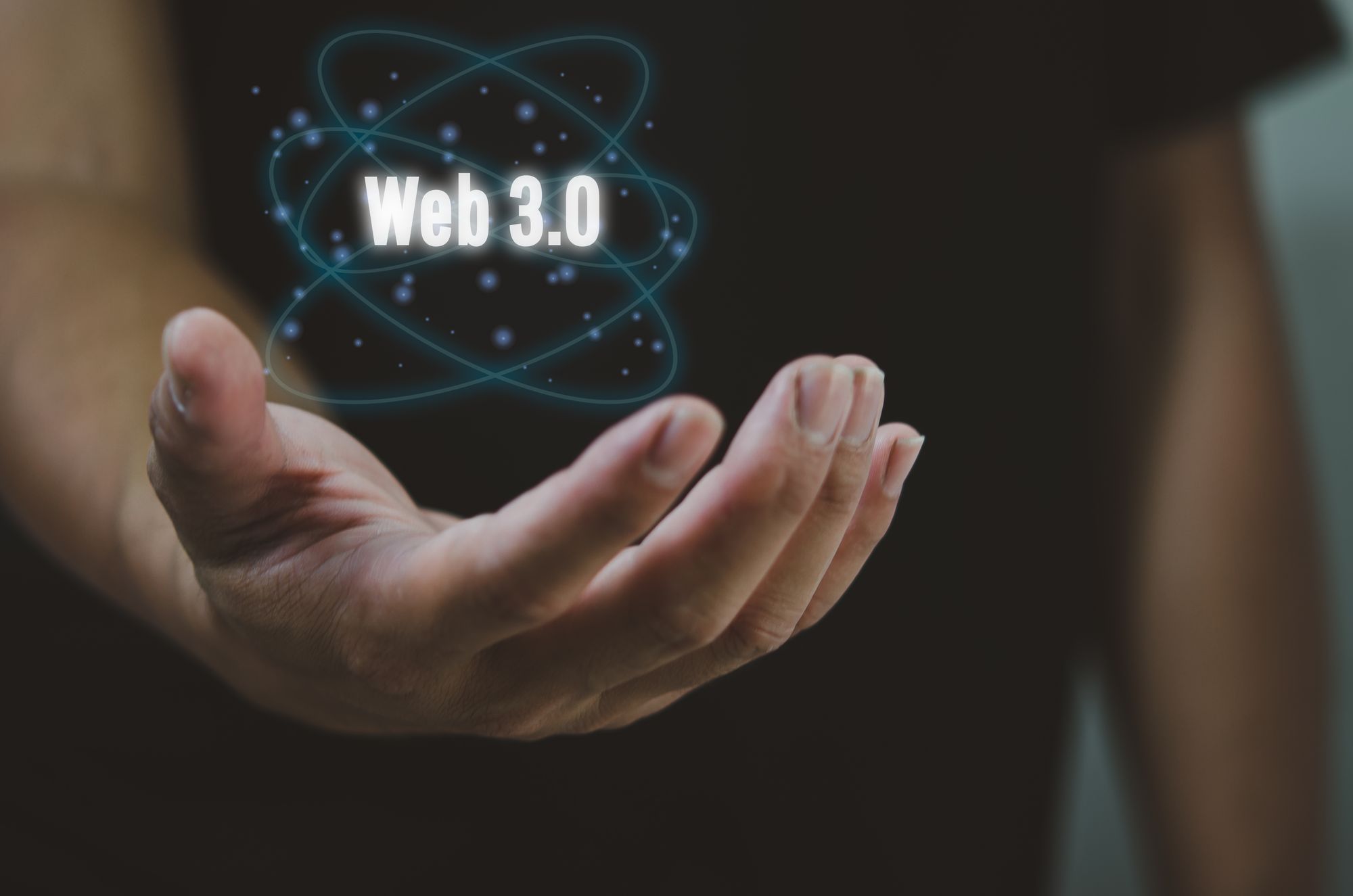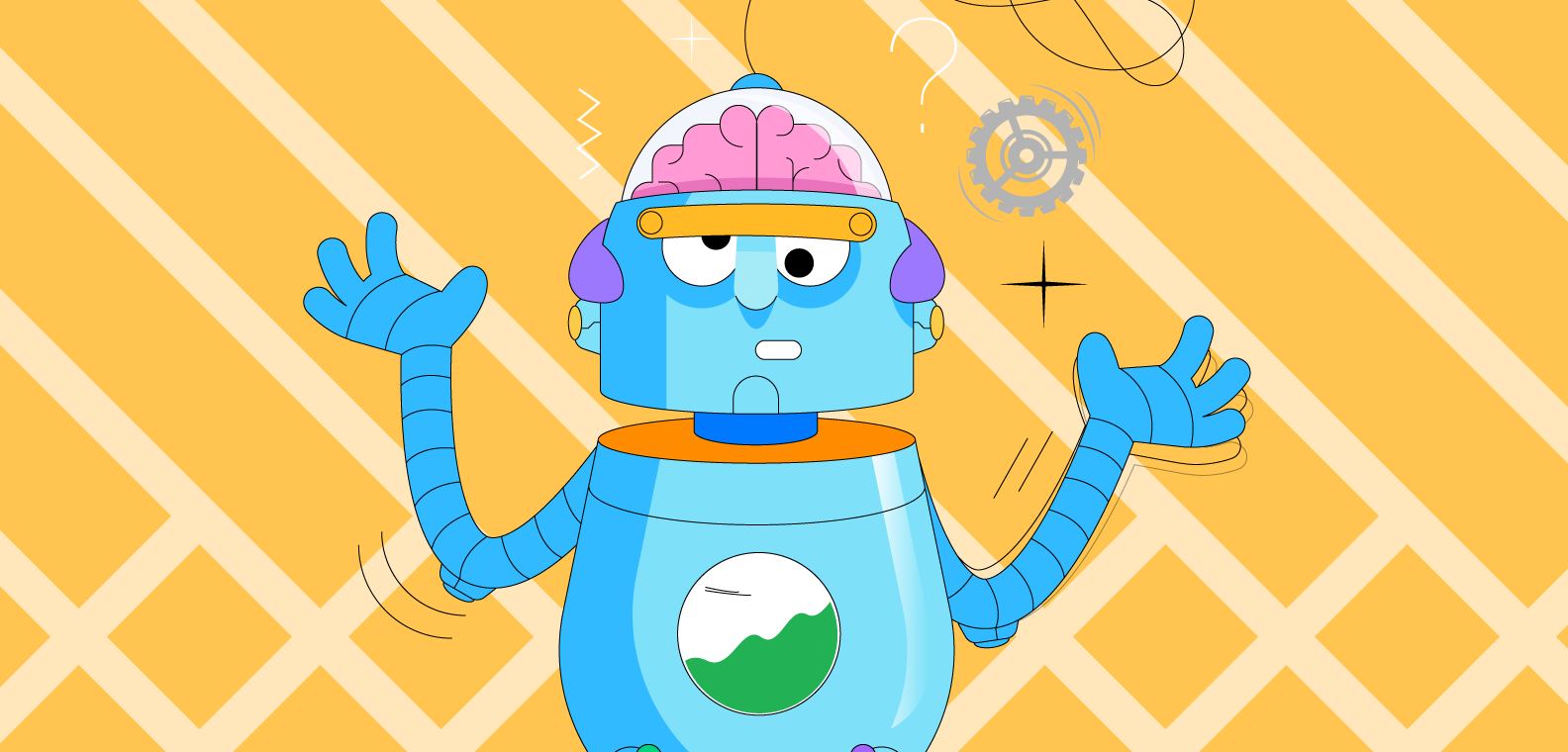Web3 has been the talk of the town for the past few years. The concept has developed over time because of the limitations that are offered by Web1 (“read-only” web) and Web2 (“read-write” web).
Web3 promises to be the “read-write-own” web to solve the problem of the web being monopolized by big corporations by giving power to individuals in the form of ownership. In pursuing this, Web3 takes advantage of blockchain technology, cryptocurrencies, and NFTs.
And while there’s inarguably a lot regarding Web3 that paves the way for a brighter future for us online, there are still some disadvantages you should be aware of.
Let's find out together what makes Web3 such a popular topic and also what are the challenges regarding this.
What is Web3?
Web3 is like the third generation of the internet. Some of the current and also upcoming defining elements of Web3 include the emergence of blockchain, DeFi, and crypto together with artificial intelligence (AI), machine learning, and AR/VR (augmented reality/virtual reality).
Web3 has the potential to provide various benefits for the users, such as greater financial opportunities as users have increased ownership over their own data.
Then again, there are also some challenging aspects that slow down the process of Web3 being easily accessible for everyone. And even when these challenges can be somehow over come, there’s the looming risk of Web3 furthering our addiction to the internet.
But we will get to all of it in more detail shortly.

The Advantages Of Web3
Before we can dive into the disadvantages of Web3, we still need to have an understanding of some advantages Web3 offers.
- Decentralization. Huge corporations like Google and Meta will no longer be the data entities as the data will not be controlled or centralized. This gives us the opportunity to create a more democratized version of the internet.
- Ownership. The decentralized web will allow users to have control over their data and remain in ownership of their content and information. This concept is one step forward from Web2, where users can be seen as the product themselves.
- Access to Metaverse. Web3 brings us opportunities of the metaverse, giving users a 3D online space to come together and interact with one another.
- Boosted personalization. With Web3 and the metaverse, online experiences will be enhanced as they can be tailored to everyone's personal preferences on new levels. This creates an opportunity to get more relevant content as well as bring forward new ways of connecting and collaborating with other users.
- Enhanced transactions. As smart contracts eliminate the need for numerous intermediaries in the process of facilitating transactions, they will ease the whole process and provide additional security and speed.
- Transparency. Web3 has viewable source codes so users can track their data gaining valuable insight about platforms and information on assets’ value.
The Disadvantages Of Web3
Whereas everything mentioned above sounds pretty awesome, of course, everything is not as rosy. So let’s take a look at the drawbacks of Web3 that everyone should be aware of:
- Web3 is still being developed. It’s still early days for Web3, and it’s expected to take a few years before essential details will be out of its conceptual phase.
- Limited accessibility. Technologies such as blockchain, AI, and machine learning are at the core of Web3. And although Web3 aims to provide a more democratized version of the internet, users with less advanced devices will have significant limitations in experiencing Web3. Moreover, the concept can be hard to grasp for newcomers.
- Existing websites will require an update. When Web3-based websites and applications gain popularity, it pushes existing firms to modernize their platforms. Otherwise, they can lose a significant portion of their currently captured market.
- Easy access to users’ personal and public information. Although in the big picture, having control of data is an advantage, blockchain technology records all transactions in a public transcript, making it easier to acquire access to personal and public data that would otherwise be private. Furthermore, there will be limitations to staying anonymous in the metaverse as the avatars used there have to be linked to an actual person so the space wouldn’t be crowded with unverified characters that don’t exist in real life.
- Difficult to regulate. The decentralization comes with challenges in monitoring activity and applying regulations. Therefore, it’s likely we will see an increase in cybercrimes such as illicit dealings taking place online as well as money laundering.
- Negative impact on the environment. Currently, Web3 activities have a heavy carbon footprint as mining uses up enormous amounts of energy. For Web3 to be a sustainable solution, more efficient methods must be developed.
All the above-mentioned brings us to the fact that Web3 is not yet ready and that there are still significant areas that need to be well thought-through in order to make the concept less complex, more user-friendly, and therefore have the chance to be widely adopted among users.
And the challenges don’t end with this list. For instance, another important aspect that needs to be taken into consideration before jumping headfirst into Web3 and the Metaverse is the impact on mental health.
Web3 Possible Impact on Mental Health

We all have heard that social media can be harmful to our mental health, especially when it’s consumed in excessive amounts. Just some examples of how social media can affect its users:
- Obsessive behavior over the number of likes, comments, and other sorts of recognition we can get on social platforms is easy to come as the attention can be very addictive due to the release of dopamine in our brain. This can easily result in excessive amount of time spent on social media, creating a false presence there and forgetting to actually live our lives while also increasing social jealousy and loneliness.
- Social media bullying, such as negative comments, can lead to anxiety and depression that, in some cases, result in self-harm or even suicide. Social platforms let us easily compare ourselves to others, leaving us feeling worthless and resutling in overall low-self esteem.
And whereas social media’s impact on our mental health has been proven over and over again, the impact that comes with the development of the metaverse is yet unknown. However, as the metaverse uses AR and VR, it could be even more harmful to our mental health, especially if these threats are not spoken about.
Some aspects to think about:
- Magnified version of reality is likely to be more addictive than social media resulting, which can add to people comparing themselves to other users and having even more unrealistic life expectations. Moreover, bullying in the metaverse can take on a whole new dimension.
- Danger of preferring the metaverse to the real world, especially those struggling with some aspects already in real life. This could lead to lessened social interactions, financial issues, and even paranoia.
- Physical problems due to the overuse of VR/AR headsets and other similar technologies that decrease physical movement and can result in severe eye issues.
With the rise of Web3’s popularity, some people likely have to adapt metaverse into their daily lives due to their workplace requirements or social pressure even if they find it stressful and know already that their mental health can be easily affected.
In Conclusion
It is clear that Web3 has the potential to boost many aspects of how we browse the web and live our lives. And while it can bring us many improvements and benefits, there are still various aspects that require improvements and consideration.
However, no matter which developments we see in these technologies in the future, it will always be each individual’s own responsibility to understand what we are getting ourselves into.
This way we can ensure we use Web3 with good intentions and to really make improvement rather than the other way around. And of course, we need to keep a clear head in order to minimize the possibility of letting it us control us even more than Web2 already does.